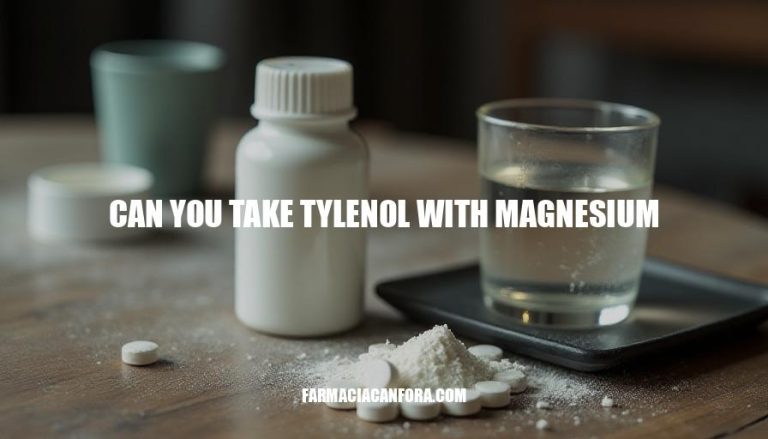


Tylenol, also known as acetaminophen, helps with pain and fever. It’s often used for headaches, muscle aches, arthritis, and colds. Magnesium is an important mineral that helps with many bodily functions like muscle and nerve function, energy production, and bone health.
Some people wonder if they can take Tylenol and magnesium together to get the most benefits.
While Tylenol is good for pain and fever, magnesium can help with muscle relaxation, sleep, and migraines. People might want to combine them to address multiple symptoms at once or get extra relief. But it’s crucial to understand how they interact and use them safely, as some factors like absorption and health conditions can affect their compatibility.
Tylenol, also known as acetaminophen, is a widely used over-the-counter medication for pain relief and fever reduction. Magnesium, an essential mineral, plays a crucial role in various bodily functions, including muscle and nerve function, blood pressure regulation, and protein synthesis. When considering the combination of Tylenol and magnesium, it is important to evaluate potential interactions, safety concerns, and recommendations from health authorities.
Magnesium supplements may interfere with the absorption of certain medications, but no direct interactions between Tylenol and magnesium have been identified.
However, to avoid any potential absorption issues, it is generally recommended to take magnesium supplements at least two hours before or after taking Tylenol.
Both Tylenol and magnesium are processed by the kidneys, and excessive use of either substance may impact kidney function. Individuals with pre-existing kidney conditions or those taking other medications that affect kidney function should consult a healthcare professional before combining these substances.
Tylenol has a narrow safety margin, and exceeding the recommended dosage can lead to liver damage. The maximum daily dose for most adults is 4,000 milligrams, but it is safer to limit intake to 3,000 milligrams per day, especially with frequent use.
Magnesium, when taken in high doses, can cause gastrointestinal side effects such as diarrhea. It is crucial to adhere to the recommended dosages for both substances to minimize risks.
Health authorities emphasize the importance of consulting a healthcare provider before combining Tylenol with magnesium, particularly for individuals with underlying health conditions or those taking other medications. Personalized medical advice ensures safe and effective use of these substances.
1statcarewalkin.com2www.drugs.com3statcarewalkin.com4www.health.harvard.edu5www.drugs.com
While taking Tylenol (acetaminophen) and magnesium together can be safe, it’s crucial to understand how they interact and use them correctly. Here are some key points to consider:
To ensure safe and effective use of these substances, consult a healthcare provider for personalized guidance. They can help you understand potential interactions and provide recommendations tailored to your specific needs.